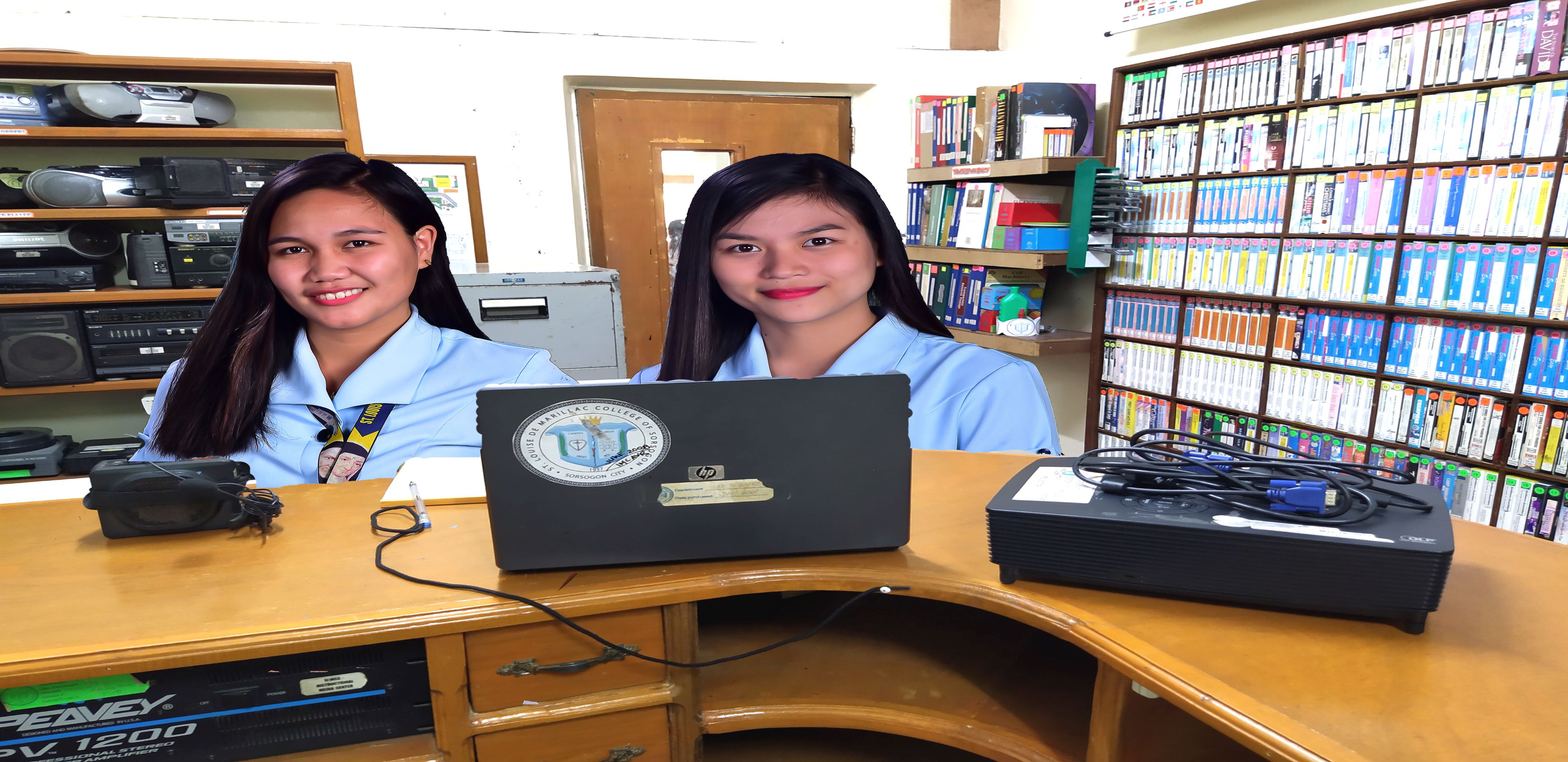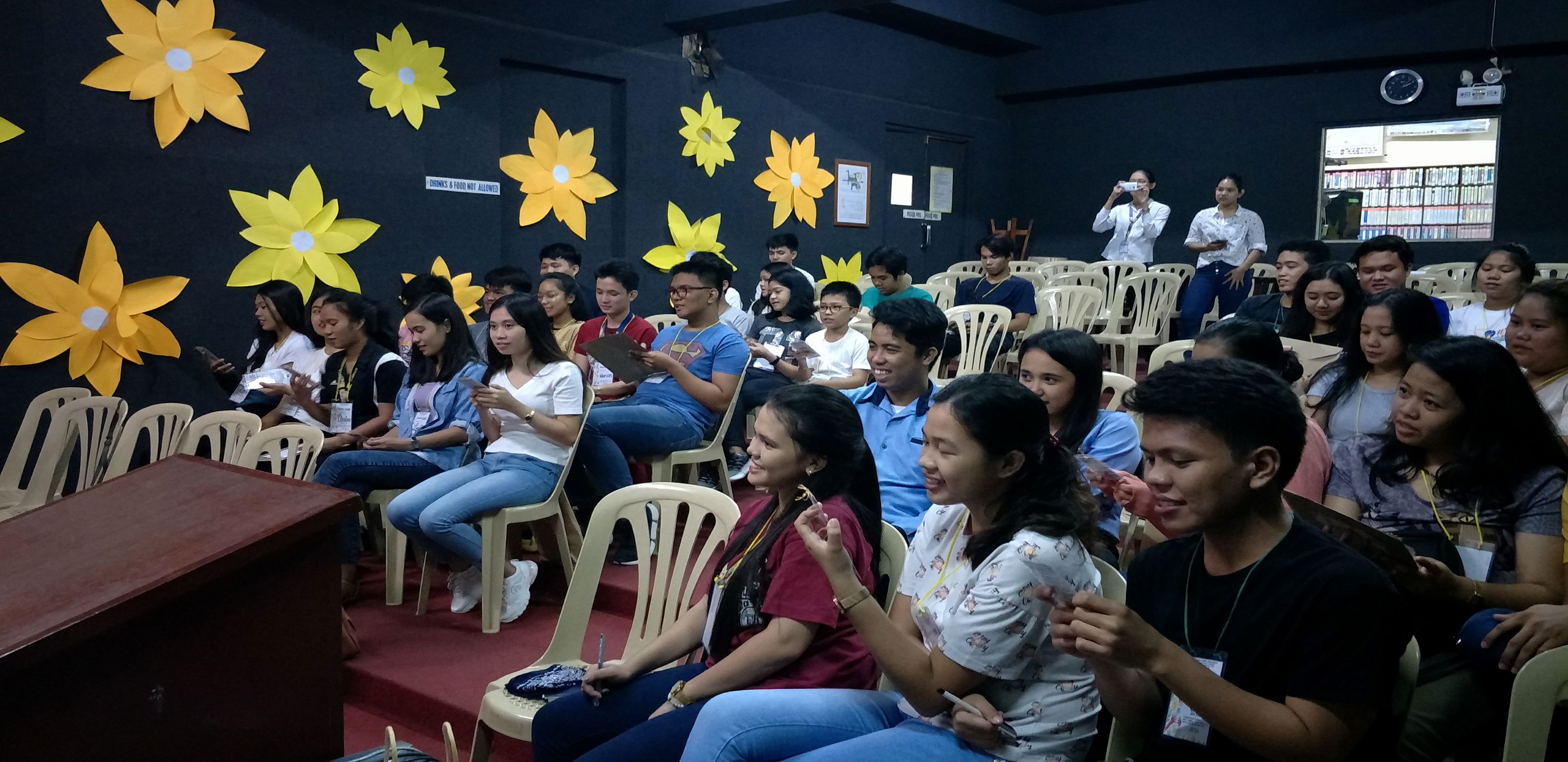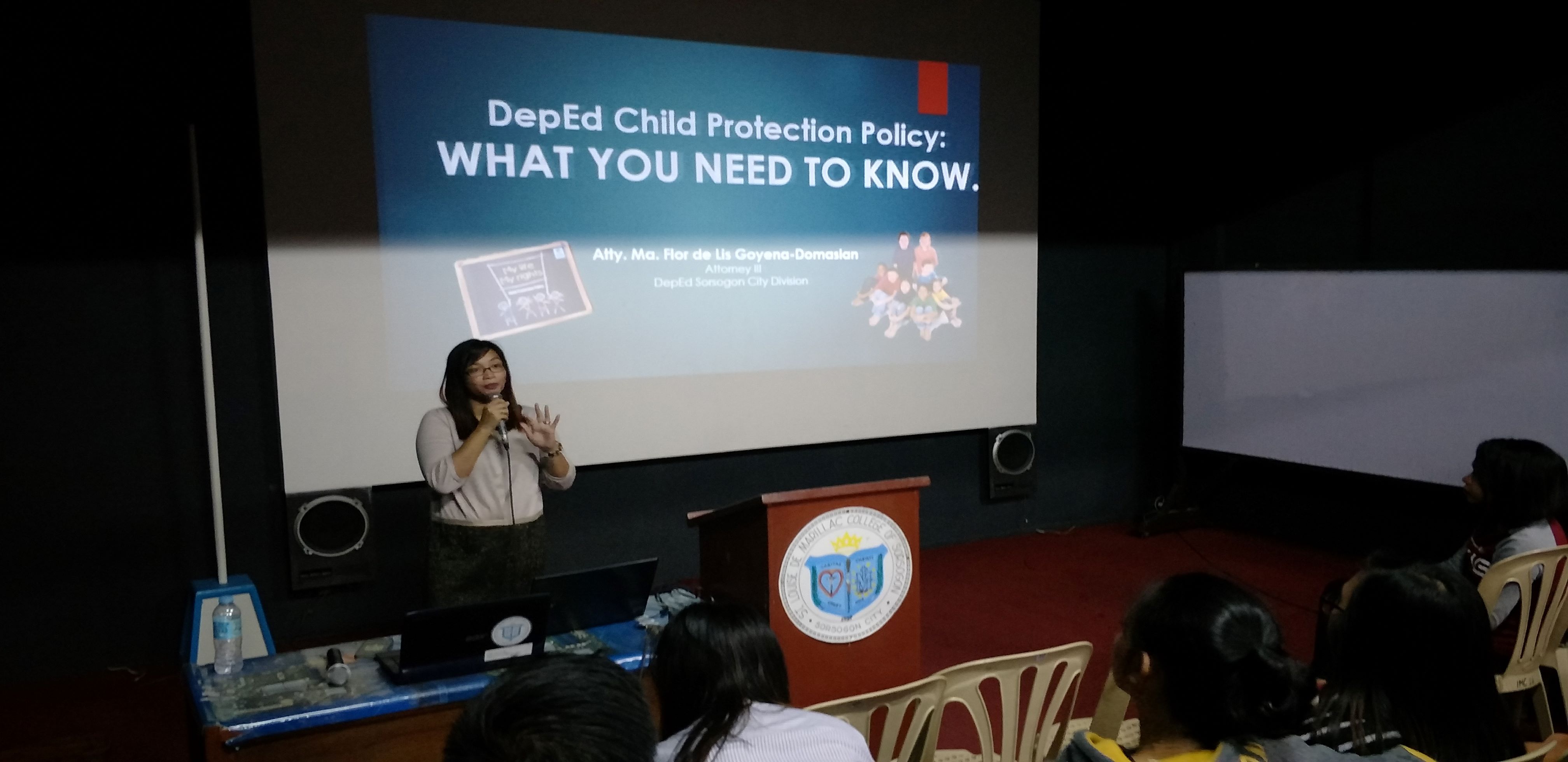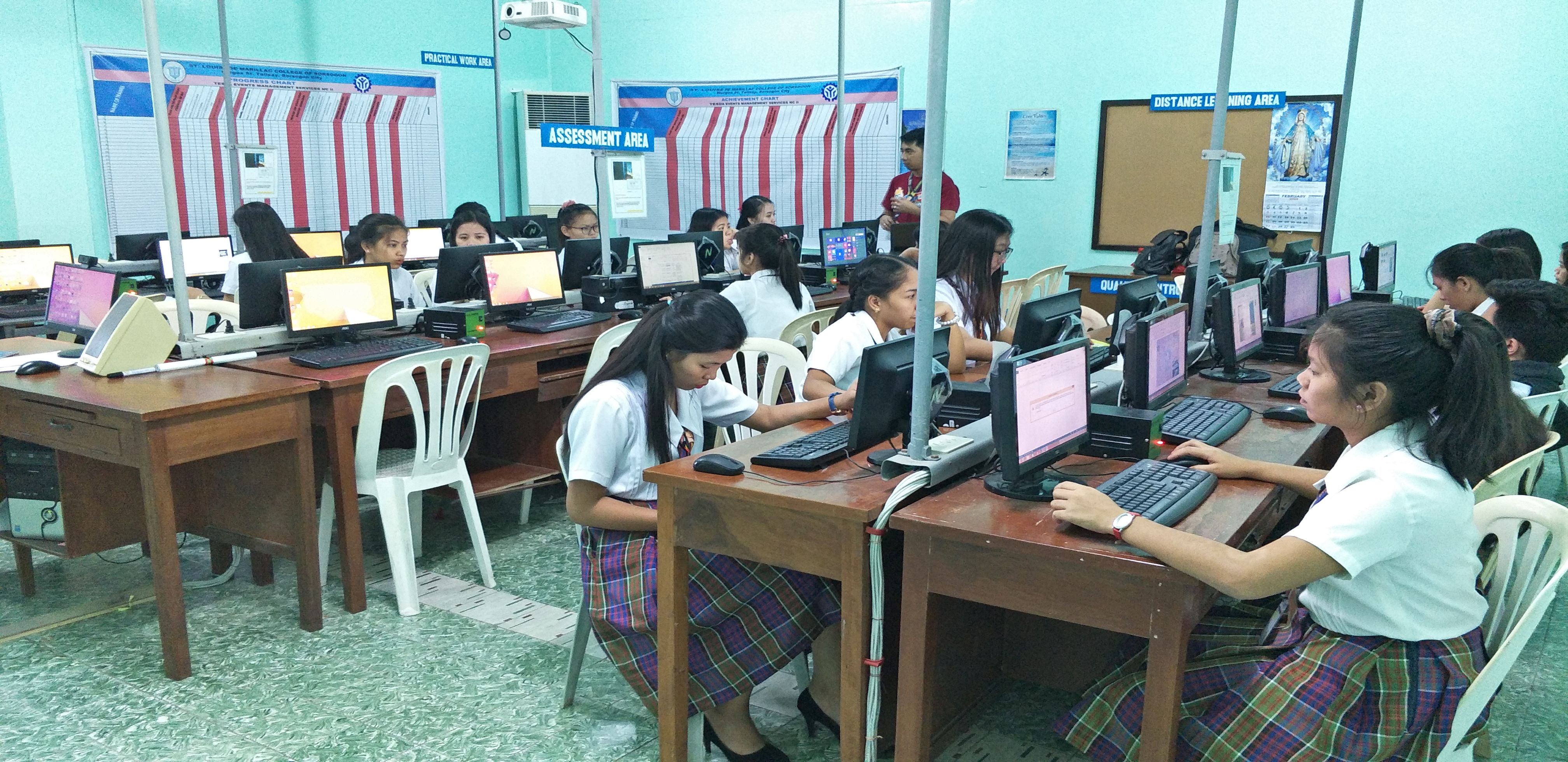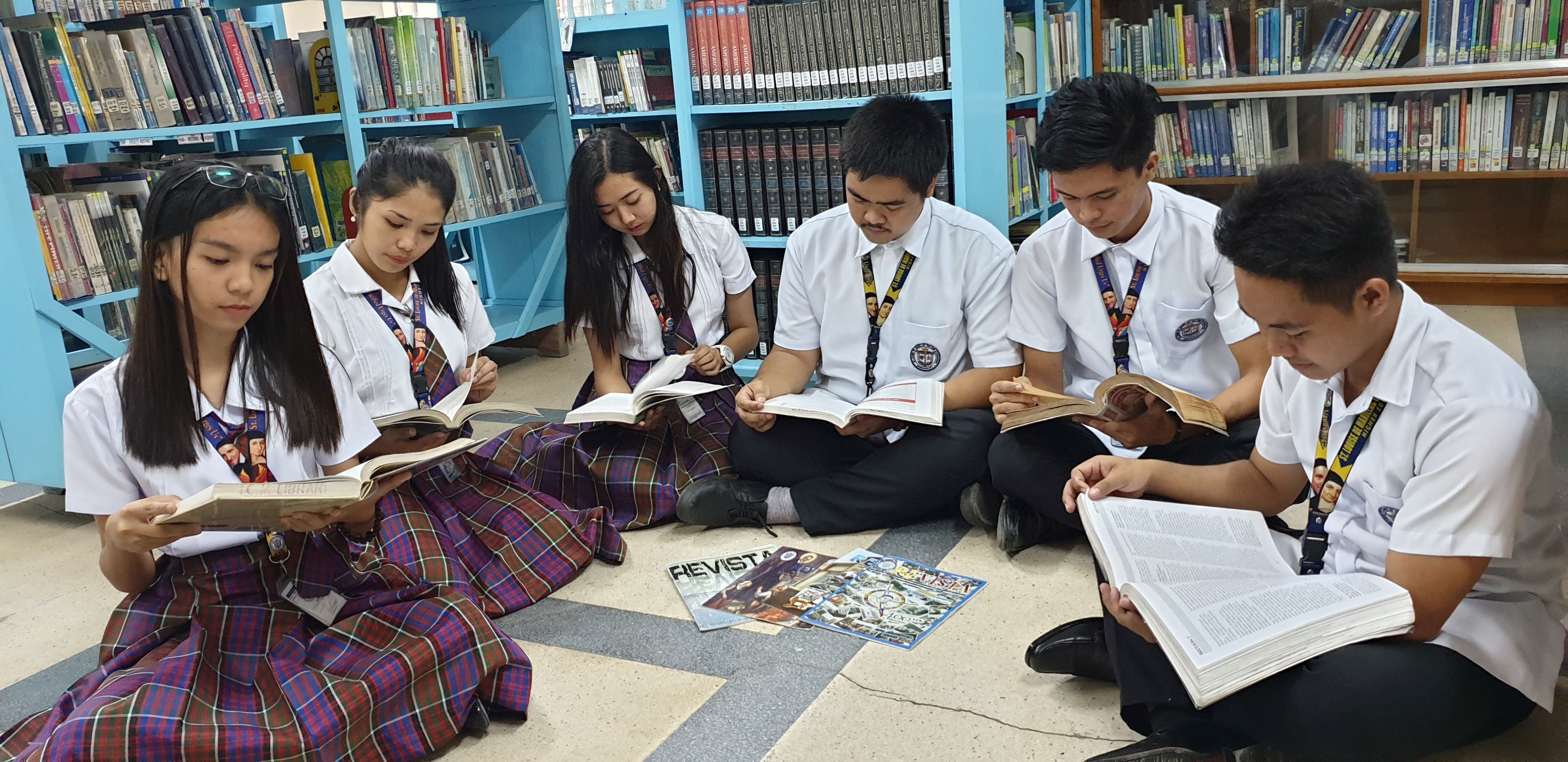Program Overview
The Bachelor in Elementary Education offers areas of concentration in English, Health and Science, Mathematics, Social Studies and Filipino. The Bachelor in Secondary Education offers major in English, Values Education, General Science, Bio-Chemistry, Bio-Physics, Mathematics, History, Library Science, Guidance & Counseling and Filipino.
The Bachelor of Elementary Education (BEED) is a four-year degree program designed to prepare students to become primary school teachers. The program combines both theory and practice in order to teach students the necessary knowledge and skills a primary school teacher needs. The program aims to produce competent teachers specializing in the pedagogical approach of education.
Recommended Senior High School Strand
Students who want to pursue a degree in Elementary Education are encouraged to take the Humanities and Social Sciences (HUMSS) strand under the Academic track. The curriculum focuses on human behavior, literature, education, politics, liberal arts, and society. The HUMSS strand will cover relevant topics that may be further discussed in their college lectures.
The student must be a high school graduate. However, if they were not able to graduate high school, they may opt to take the Alternative Learning System (ALS) and pass the Philippine Educational Placement Test (PEPT) to qualify for college; the availability of courses for PEPT passers depend on the university.
The students must pass the College Admissions Test of the university.
OBJECTIVES OF THE HIGHER EDUCATION DEPARTMENT
The College and the Graduate School curricula of St. Louise de Marillac College of Sorsogon are designed to seek the total human and Christian development of the Filipino man and woman by providing varied opportunities for their continuing education through a balanced program of spiritual, moral, intellectual, physical and social formation. It generally aims to:
Higher Education Department specifically seeks to develop:
A fully-functioning person who:
In addition to taking the subjects mentioned above, you may also undergo an On-the-Job Training at companies and organizations that can help further develop your skills such as advertising agencies, publishing companies, and radio or TV stations to name a few.
A mature Filipino who:
A mature Christian who:
A mature Vincentian who:
A service-oriented person who:
A professional who:
A Marian devotee who:
A DC school graduate who:
THESE OBJECTIVES CAN BE REALIZED THROUGH:
The Education Program
The Education program is designed to prepare students to become educators for the New Millennium imbued with Christian and Vincentian spirituality, leadership, commitment, pride of one’s cultural heritage and concerned with the promotion of quality life in the larger community. To facilitate their integral formation, they are further trained to be globally competitive and competent in their chosen field of specialization, capable of critical thinking, effective communication and sound judgment.
ADMISSION POLICIES
The College observes a Selective Retention Policy for the Education and Bachelor of Physical Education Programs and Open Admission Policy for other courses such as the BSBA, BA and BSHM.
It admits students who are of good moral character and have complied with the credentials set forth by the School. Qualifying entrance examinations are administered for purposes of placement. A student eligible for admission recognizes, accepts, and complies with all existing policies, regulations and requirements concerning his school duties and campus activities, set forth in the Student Handbook.
St. Louise de Marillac College of Sorsogon exercises its prerogative to admit or not to admit students, under certain conditions as prescribed in its Manual of Operations and others pursuant to the Manual of Regulations for Private Schools.
Admission Requirements
Freshmen/ New Students
1. Qualifying Entrance Examination
2. Submission of the following credentials within the designated period:
3. For enrollees who are Non-ABM but intend to get Business Education and Bachelor of Science in Hospitality Management Courses are required to take the following subjects as part of their Bridging Program:
Program Outcome
Elementary Education graduates are expected to able to:
On-The-Job Training/Internship
During the fourth year of the program, students are required to attend an On the Job Training (OJT) in educational institutions. Students are given the opportunity to apply their knowledge and skills in an actual work setting. Usually, universities require them to submit a written report on their tasks, learning experiences, and hours rendered. Their work performance will also be evaluated by their immediate managers and will be submitted to their respective OJT coordinator. The number of hours required may differ in each university.
Board Examination
To become a Licensed teacher in the Philippines, a graduate of a graduate of Bachelor of Elementary Education needs to pass the Licensure Examination for Teachers (LET). The examination is conducted by the Board of Professional Teachers under the supervision of the Professional Regulations Commission (PRC). The LET exam is usually conducted twice a year during the month of January and July. There is also an option to take the Teacher Certificate Program (TCP), a non-degree program for graduates of any Bachelor’s degree who intend to become teachers. TCP is considered to be the fastest way to get into the Teaching Profession, requiring only 18 units of Professional Education. Individuals who successfully completed the TCP is given a certification and is qualified to take the Licensure Examination for Teachers (LET).
Career Opportunities
Graduates of Bachelor of Elementary Education may pursue a career path in any educational institutions. They could apply as a preschool teacher, teaching assistant, private tutor, or subject teacher.
